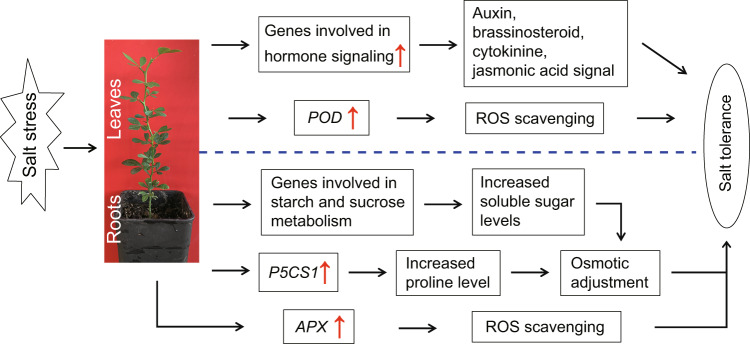Fig. 9. A model for mechanisms underlying the enhanced salt tolerance of trifoliate orange autotetraploids.
Under salt stress, tetraploid plants exhibit enhanced salt tolerance in comparison with diploid progenitors due to the activation of multifaceted defense machinery in leaves and roots. In the leaves, activation of hormonal signaling and antioxidant enzyme (POD) genes leads to efficient hormonal signaling and improved ROS scavenging ability. In the roots, increased production of soluble sugars and proline due to upregulated expression of related genes, along with robust ROS scavenging ability by elevated expression of the APX gene, results in efficient adjustment of osmotic potential and detoxification of ROS

